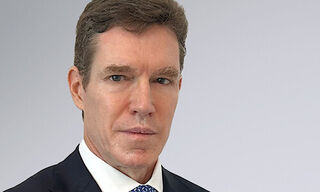Financial markets and many companies have become hopelessly caught up in wokeness. Going back to the days of shareholder value is the only way out, writes Adriano Lucatelli in a piece for finews.first.
finews.first is a forum for authors to comment on economic and financial topics.
Leading a company has never been a trivial matter. Managing conflicting interests in the context of set objectives is part and parcel of the daily rigmarole. Time and money are limited. When seen as resources, those two factors have very strict, inviolable limits. That is why a company can never do all the things that make sense. On the other hand, they can also do many things that make no sense at all.
Looking at it from that perspective, one gets the impression that we have reached a low point when it comes to general corporate priorities. Many companies seem to be catering to woke interests while leaving their businesses on the backburner.
«Victoria’s Secret shot itself in the foot with plus size models»
Credit Suisse is a glaring, and Swiss, example of all that. Management was ostensibly more preoccupied with the questions of diversity on its board than it was on its balance sheet.
In Germany, auto manufacturers preach unisono about electric vehicles even though that is clearly not where their strengths lie. Siemens Energy, headed by Joe Kaeser – a supposed Greta Thunberg devotee – is currently in negotiations for government guarantees.
In the US, Victoria’s Secret shot itself in the foot with plus-size models. Budweiser tried educating its conservative client base with an LGBTQ ad campaign that subsequently prompted a sizeable drop in sales.
«How did it come to this?»
Something is wrong when companies put their businesses at risk to make social-political statements. How did it come to this? Many indicators point to a declining emphasis on shareholder value, whose influence has been on the wane since the 1990s and which has resulted in this recent turn to woke capitalism. A company that stops focusing on sales and profit to curry favor with a minority no longer has anything to do with shareholder value.
Management philosophies have been invented to help companies judge which activities make sense and which do not. Economics professors and successful entrepreneurs have always attempted to identify the analytical theories that guarantee successful economic activity. Some of them are more practical and some more theoretical. Some fill an entire bookshelf while others come up with little more than basic rules of thumb for internal corporate use.
«A reaction to the complacent old boys’ network»
In listed companies, ownership is usually highly diversified and distributed. As a result, company leadership must spend time tackling the critical issue of ownership and what position those owners have within a corporation. In recent decades, that answer has changed meaningfully.
In the US, shareholder value started to become a theme in the 1970s and 1980s. It put the interests of shareholders before everyone else. In that context, the job of the manager was to maximize an investor’s earnings in the form of increased dividends or higher share prices.
It was a reaction to the complacent old boys’ network that had made themselves very comfortable in the leather seating of board rooms while doing very little. The result was that many of them failed miserably during the American economic crisis of the 1970s. Meanwhile, at the time, in academia, Milton Friedman was preparing the grounds for shareholder value. In the 1970s, he wrote in the «New York Times»: «The social responsibility of business is to increase its profits».
«Shareholder value was not very popular with management»
The philosophy became almost universally successful in the 1980s. It even made its way to Switzerland, with activist investors such as Tito Tettamanti shaking up the cozy business establishment here. However, shareholder value was not very popular with management. In 1992, economics professor Robert Kaplan from the Harvard Business School created a so-called Balanced Scorecard to counter it.
Now, instead of concentrating on maximizing shareholder value, management had to focus on short-term decision-making based on four variables that would theoretically achieve long-term success. These were data, learning and growth, business processes, and client orientation. It did away entirely with the crisp clarity of shareholder value. However, the Balanced Scorecard says nothing about weightings/balance - or results. For a CEO, it is much easier to decide within the context of four vague variables instead of having to do so in one clear, inalienable direction.
«Woke capitalism is an extreme example of the stakeholder approach»
The Balanced Scorecard was then followed up by the stakeholder approach. Companies went on to define many interest groups that counted as stakeholders, including employees, clients, NGOs and the public. All these needed catering. That meant that the analytical and measurement issues already afflicting the Balanced Scorecard became even worse.
The broad spread of woke capitalism is an extreme example of the stakeholder approach. It turns social minorities such as environmental activists into important stakeholders. And it is not only the arbitrary definition of the different groups that is irritating. Regardless of their importance in the social-political arena, using them as an instrument of management is counterproductive, as the number of mishaps shows.
«The only solution is a return to shareholder value»
All these philosophies have resulted in widespread business failures. Beyond that, they dilute the responsibility of management. CEOs can juggle their various objectives at will. In doubt, the only thing maximized is their pay. The solution? A return to shareholder value with its simplicity and clear responsibilities.
The criticism of the shareholder value approach, which was viewed as engendering short-term thinking quarter by quarter, has never really stood the test of time. The fear that companies would become these amoral beasts was always an unfounded accusation from interested parties. It is fully known that the worth of a company on an exchange comes from the expected value of discounted future earnings. It is a very long-term approach that punishes short-term thinking.
Adriano B. Lucatelli is a Swiss entrepreneur and the founder of Descartes Finance, an independent fintech. He studied economics and international relations at the University of Nevada (BA) and at the London School of Economics (MSc). He wrote a PhD at the University of Zurich on global financial market supervision.
Previous contributions: Rudi Bogni, Peter Kurer, Rolf Banz, Dieter Ruloff, Werner Vogt, Walter Wittmann, Alfred Mettler, Robert Holzach, Craig Murray, David Zollinger, Arthur Bolliger, Beat Kappeler, Chris Rowe, Stefan Gerlach, Marc Lussy, Nuno Fernandes, Richard Egger, Maurice Pedergnana, Marco Bargel, Steve Hanke, Urs Schoettli, Ursula Finsterwald, Stefan Kreuzkamp, Oliver Bussmann, Michael Benz, Albert Steck, Martin Dahinden, Thomas Fedier, Alfred Mettler, Brigitte Strebel, Mirjam Staub-Bisang, Nicolas Roth, Thorsten Polleit, Kim Iskyan, Stephen Dover, Denise Kenyon-Rouvinez, Christian Dreyer, Kinan Khadam-Al-Jame, Robert Hemmi, Anton Affentranger, Yves Mirabaud, Katharina Bart, Frédéric Papp, Hans-Martin Kraus, Gerard Guerdat, Mario Bassi, Stephen Thariyan, Dan Steinbock, Rino Borini, Bert Flossbach, Michael Hasenstab, Guido Schilling, Werner E. Rutsch, Dorte Bech Vizard, Adriano B. Lucatelli, Katharina Bart, Maya Bhandari, Jean Tirole, Hans Jakob Roth, Marco Martinelli, Thomas Sutter, Tom King, Werner Peyer, Thomas Kupfer, Peter Kurer, Arturo Bris, Frederic Papp, James Syme, Dennis Larsen, Bernd Kramer, Armin Jans, Nicolas Roth, Hans Ulrich Jost, Patrick Hunger, Fabrizio Quirighetti, Claire Shaw, Peter Fanconi, Alex Wolf, Dan Steinbock, Patrick Scheurle, Sandro Occhilupo, Will Ballard, Nicholas Yeo, Claude-Alain Margelisch, Jean-François Hirschel, Jens Pongratz, Samuel Gerber, Philipp Weckherlin, Anne Richards, Antoni Trenchev, Benoit Barbereau, Pascal R. Bersier, Shaul Lifshitz, Klaus Breiner, Ana Botín, Martin Gilbert, Jesper Koll, Ingo Rauser, Carlo Capaul, Markus Winkler, Thomas Steinemann, Christina Boeck, Guillaume Compeyron, Miro Zivkovic, Alexander F. Wagner, Eric Heymann, Christoph Sax, Felix Brem, Jochen Moebert, Jacques-Aurélien Marcireau, Ursula Finsterwald, Michel Longhini, Stefan Blum, Zsolt Kohalmi, Nicolas Ramelet, Søren Bjønness, Gilles Prince, Salman Ahmed, Peter van der Welle, Ken Orchard, Christian Gast, Jeffrey Bohn, Juergen Braunstein, Jeff Voegeli, Fiona Frick, Stefan Schneider, Matthias Hunn, Andreas Vetsch, Fabiana Fedeli, Kim Fournais, Carole Millet, Swetha Ramachandran, Thomas Stucki, Neil Shearing, Tom Naratil, Oliver Berger, Robert Sharps, Tobias Mueller, Florian Wicki, Jean Keller, Niels Lan Doky, Johnny El Hachem, Judith Basad, Katharina Bart, Thorsten Polleit, Peter Schmid, Karam Hinduja, Zsolt Kohalmi, Raphaël Surber, Santosh Brivio, Mark Urquhart, Olivier Kessler, Bruno Capone, Peter Hody, Michael Bornhaeusser, Agnieszka Walorska, Thomas Mueller, Ebrahim Attarzadeh, Marcel Hostettler, Hui Zhang, Michael Bornhaeusser, Reto Jauch, Angela Agostini, Guy de Blonay, Tatjana Greil Castro, Jean-Baptiste Berthon, Marc Saint John Webb, Dietrich Goenemeyer, Mobeen Tahir, Didier Saint-Georges, Serge Tabachnik, Vega Ibanez, David Folkerts-Landau, Andreas Ita, Michael Welti, Mihkel Vitsur, Fabrizio Pagani, Roman Balzan, Todd Saligman, Christian Kaelin, Stuart Dunbar, Carina Schaurte, Birte Orth-Freese, Gun Woo, Lamara von Albertini, Ramon Vogt, Andrea Hoffmann, Niccolò Garzelli, Darren Williams, Benjamin Böhner, Mike Judith, Jared Cook, Henk Grootveld, Roman Gaus, Nicolas Faller, Anna Stünzi, Thomas Höhne-Sparborth, Fabrizio Pagani, Guy de Blonay, Jan Boudewijns, Sean Hagerty, Alina Donets, Sébastien Galy, Roman von Ah, Fernando Fernández, Georg von Wyss, Stefan Bannwart, Andreas Britt, Frédéric Leroux, Nick Platjouw, Rolando Grandi, Philipp Kaupke, Gérard Piasko, Brad Slingerlend, Dieter Wermuth, Grégoire Bordier, Thomas Signer, Brigitte Kaps, Gianluca Gerosa, Christine Houston, Manuel Romera Robles, Fabian Käslin, Claudia Kraaz, Marco Huwiler, Lukas Zihlmann, Nadège Lesueur-Pène, Sherif Mamdouh, Harald Preissler, Taimur Hyat, Philipp Cottier, Andreas Herrmann, Camille Vial, Marcus Hüttinger, Ralph Ebert, Serge Beck, Alannah Beer, Stéphane Monier, Ashley Simmons, Lars Jaeger, Shanna Strauss-Frank, Bertrand Binggeli, Marionna Wegenstein, George Muzinich, Jian Shi Cortesi, Razan Nasser, Nicolas Forest, Joerg Ruetschi, Reto Jauch, Bernardo Brunschwiler, Charles-Henry Monchau, Philip Adler, Ha Duong, Teodoro Cocca, Beat Wittmann, Jan Brzezek, Florin Baeriswyl, Nicolas Mousset, Beat Weiss, Pascal Mischler, Andrew Isbester, Konrad Hummler, Jan Beckers, Martin Velten, Katharine Neiss, Claude Baumann, Daniel Roarty, Kubilay Yalcin, Robert Almeida, Karin M. Klossek, Marc Taverner, Charlie T. Munger, Daniel Kobler, Patrick Stauber, Colin Vidal, Anna Rosenber, Judith Wallenstein, and Brigitte Kaps.
























